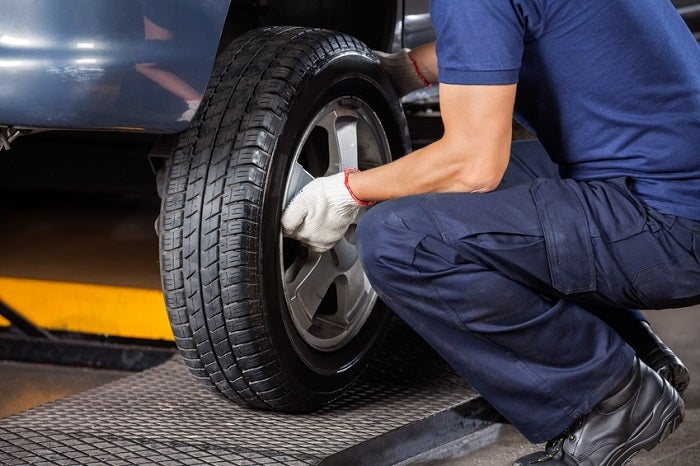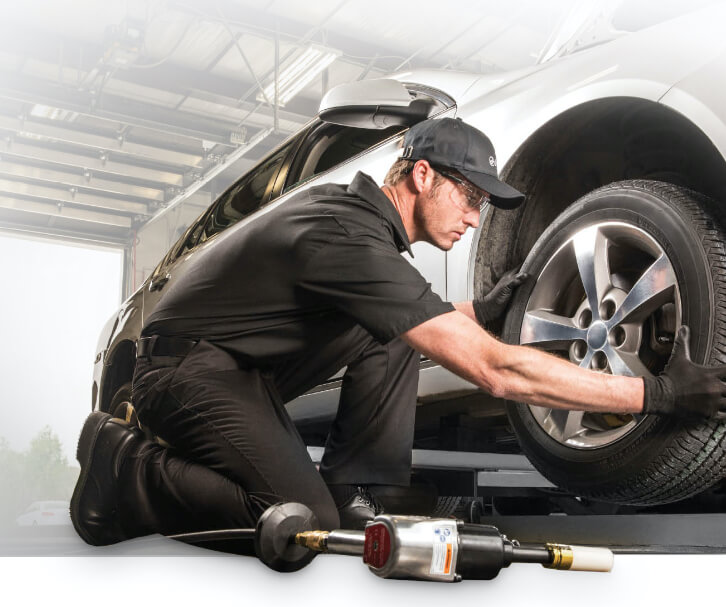Tire Solution: The Influence of Weather Problems
When it comes to making sure ideal efficiency and security when driving, understanding the impact of weather on tire service is crucial. From scorching heat to icy roads, each weather condition component can substantially affect tire performance and overall driving experience. By diving right into the effects of varying weather problems on tires, chauffeurs can acquire valuable understandings that might improve their lorry's performance and longevity. In this conversation, we will discover the intricate partnership between weather problems and tire service, clarifying the importance of weather-specific tire maintenance methods and considerations.
Warmth and Tire Efficiency
When subjected to heats, tires experience adjustments in efficiency that can significantly affect lorry safety and handling. The heat created from prolonged driving or heat problems causes the tire rubber to soften, bring about minimized walk life and raised wear. As the rubber becomes softer, the tire's grasp when traveling decreases, influencing stopping distances and total traction. In extreme instances, too much warmth can also cause tire blowouts, presenting a serious security danger to the vehicle and its owners.

Cold Climate Impacts
Cold climate problems can have a significant influence on tire efficiency and safety and security. As temperatures drop, tire rubber can solidify, leading to decreased traction on icy or snow-covered roads. In chilly weather condition, tires might additionally shed atmospheric pressure more swiftly, which can affect taking care of and gas efficiency. Furthermore, chilly temperature levels can create tire sidewalls to tense, increasing the risk of damage from gaps or other roadway hazards.
To alleviate the impacts of cool weather condition on tires, it is essential to consistently check tire pressure and inflate them to the producer's recommended levels. Using winter season or all-season tires developed for cool weather condition problems can also improve grip and grip on icy or snowy roads. Appropriate tire maintenance, including routine inspections for wear and damages, comes to be even extra crucial during cooler months to guarantee optimal performance and security.
Rainy Issues Impact
During wet problems, tire efficiency and safety and security can be considerably influenced by the damp road surface areas and lowered presence. The tread pattern of tires plays a critical role in preserving traction on wet roads. Tires with worn-out footsteps are a lot more susceptible to hydroplaning, where a layer of water develops in between the roadway and the tire surface area, bring about loss of grip. To battle this, drivers should regularly inspect their tires for adequate tread depth and click resources take into consideration investing in tires specifically developed for wet conditions.
In addition, stormy weather can additionally reduce exposure, making it challenging for drivers to see the road in advance clearly (GMC Tire Service). In such conditions, it is necessary to change driving speeds appropriately and preserve a safe complying with distance to enable unexpected quits. Correctly inflated tires can also help in maintaining control on wet roads by providing better handling and hold
Snow and Tire Safety And Security
When driving in snowy problems, having the appropriate tires special info can make a significant difference in safety and security and performance. Winter tires are developed with unique rubber substances and tread patterns to provide better traction on snow and ice compared to all-season tires.

Furthermore, drivers should take into consideration mounting tire chains in extreme snowy conditions. Tire chains provide extra traction by grasping the snow and ice, enhancing stability and control. Nonetheless, it is very important to follow manufacturer directions when making use of and installing tire chains to avoid damages to the tires and lorry. By picking the right tires, keeping appropriate rising cost of living, and considering additional traction aids like tire chains, vehicle drivers can boost their security when browsing snow-covered roadways.
Weather-Related Tire Maintenance
Weather-related tire upkeep incorporates a variety of methods aimed at guaranteeing optimum tire function and durability in different weather situations. One essential aspect of weather-related tire maintenance is tire stress policy. Examining tire walk consistently and replacing tires when tread wear gets to a certain deepness is essential for maintaining traction and security in unfavorable climate.
Conclusion
In verdict, weather problems have a substantial influence on tire performance and security. From warmth impacting tire pressure and wear to cold weather minimizing grip, it is important to take into his response consideration the weather when preserving and utilizing tires.
In this conversation, we will check out the elaborate connection in between weather condition conditions and tire service, shedding light on the relevance of weather-specific tire upkeep techniques and considerations.
